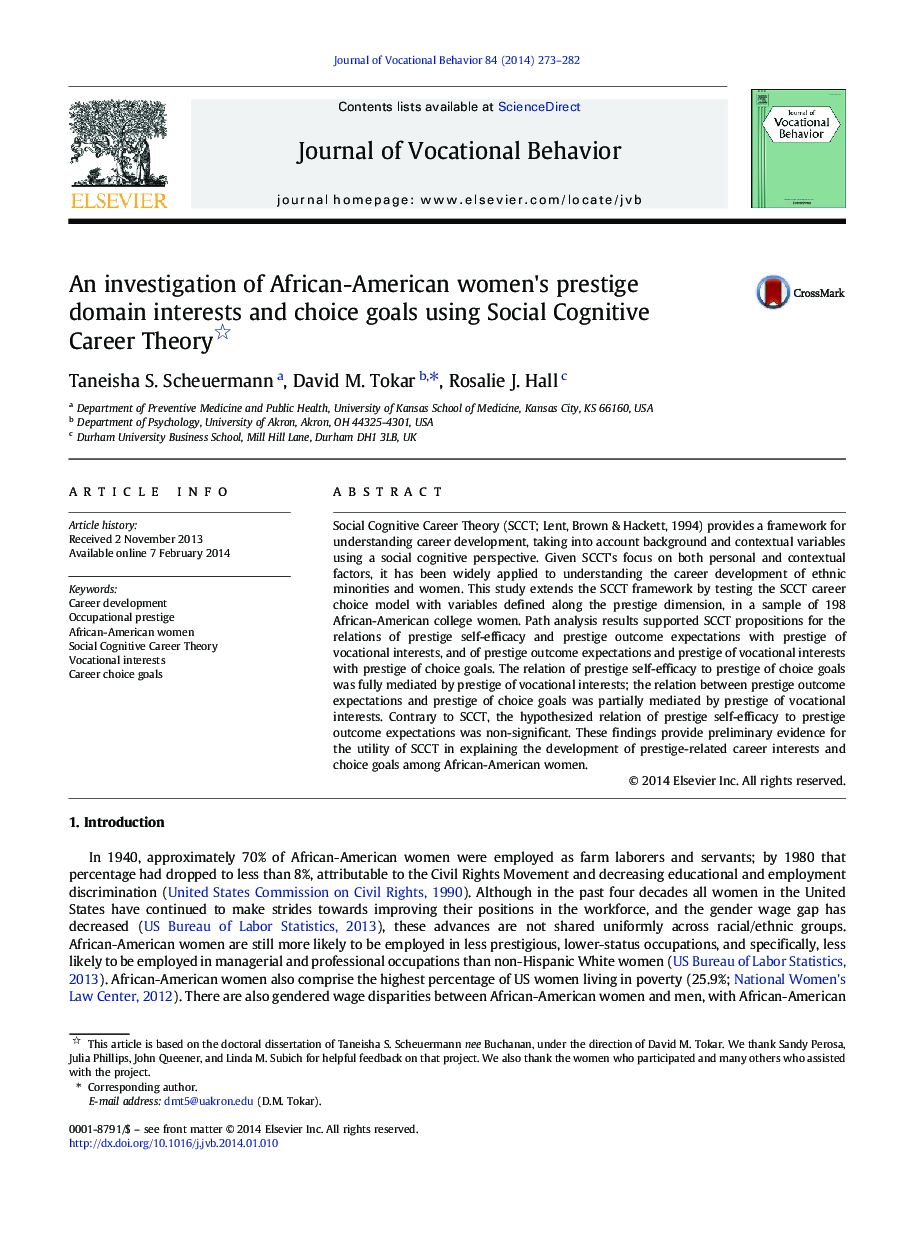| Article ID | Journal | Published Year | Pages | File Type |
|---|---|---|---|---|
| 886937 | Journal of Vocational Behavior | 2014 | 10 Pages |
•We study prestige of vocational interests and choices in African-American women.•Proposed relationships are based on Social Cognitive Career Theory.•Prestige of interests directly predicts prestige of career choice goals.•Prestige of outcome expectations has direct and indirect effects on goals.•Prestige self-efficacy effects are mediated via prestige of interests.
Social Cognitive Career Theory (SCCT; Lent, Brown & Hackett, 1994) provides a framework for understanding career development, taking into account background and contextual variables using a social cognitive perspective. Given SCCT's focus on both personal and contextual factors, it has been widely applied to understanding the career development of ethnic minorities and women. This study extends the SCCT framework by testing the SCCT career choice model with variables defined along the prestige dimension, in a sample of 198 African-American college women. Path analysis results supported SCCT propositions for the relations of prestige self-efficacy and prestige outcome expectations with prestige of vocational interests, and of prestige outcome expectations and prestige of vocational interests with prestige of choice goals. The relation of prestige self-efficacy to prestige of choice goals was fully mediated by prestige of vocational interests; the relation between prestige outcome expectations and prestige of choice goals was partially mediated by prestige of vocational interests. Contrary to SCCT, the hypothesized relation of prestige self-efficacy to prestige outcome expectations was non-significant. These findings provide preliminary evidence for the utility of SCCT in explaining the development of prestige-related career interests and choice goals among African-American women.
